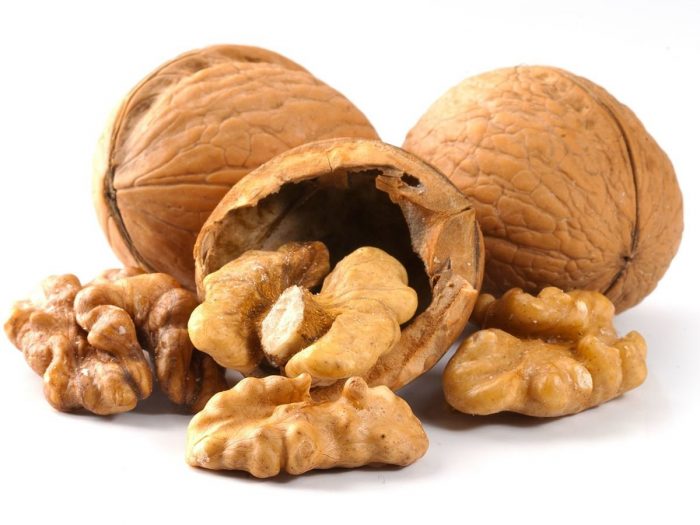You may love cooking with nuts, but when dogs eat walnuts, it can result in certain problems, depending on what condition the nut is in. Before giving your pooch any walnuts, it is best to learn about the different types of walnuts and the potential risks for your canine companion.
Can Dogs Eat Walnuts?
Dogs can eat walnuts used in cooking and baking. They have nutrients and do not pose any threat, although excessive consumption may prove to be toxic and cause seizures. In other words, there is no real risk if a piece of crumbled walnut falls to the kitchen floor and your pup nabs it before you can pick it up. As an occasional (or accidental) treat, walnuts do provide certain key nutrients and most do not pose any immediate threat. However, if you are walking your dog near a walnut tree, they might be very excited about munching on the walnuts that have fallen to the ground. Due to a good chance of these walnuts being partially moldy and potentially toxic, dog owners should ensure that their dog doesn’t gobble any of these. [1]

Walnuts are rich in omega-3 fats and antioxidants, offering many health benefits. Photo Credit: Shutterstock
The wood from black walnut trees is also known to be slightly toxic to dogs, so if you have one of these trees in your area, make sure your dog stays away. Generally speaking, English walnuts and Japanese walnuts are perfectly safe for dogs when given in moderation. Excessive consumption can cause gastrointestinal distress and difficulty with digestion, so it shouldn’t be considered a regular addition to their diet. All human food should be seen as an occasional treat since a normal balanced diet of dog food should provide all the nutrients a dog needs.
Walnut Toxicity in Dogs
While walnuts themselves aren’t dangerous in most cases, walnuts that have fallen from the tree and have sat on the ground for a few days will begin to mold. When this occurs, there is a release of tremorgenic mycotoxins in the nut and surrounding husk that can make your dog extremely ill, resulting in tremors or seizures. This type of toxicity can happen rather rapidly if dogs eat walnuts and it does not require a huge amount of walnuts to be consumed. [2]
More specifically, this toxin is known as penitrem A and should be taken very seriously. In most cases, if your dog begins showing signs of walnut toxicity, such as weakness, shaking, panting, excessive drooling or muscle tremors, take your pup to the vet immediately. They will likely induce vomiting with various substances to remove as much of the toxins as possible before it moves through the digestive system. While you can induce vomiting at home with diluted hydrogen peroxide, it is best to seek professional help to protect the health of your canine pal. [3]
